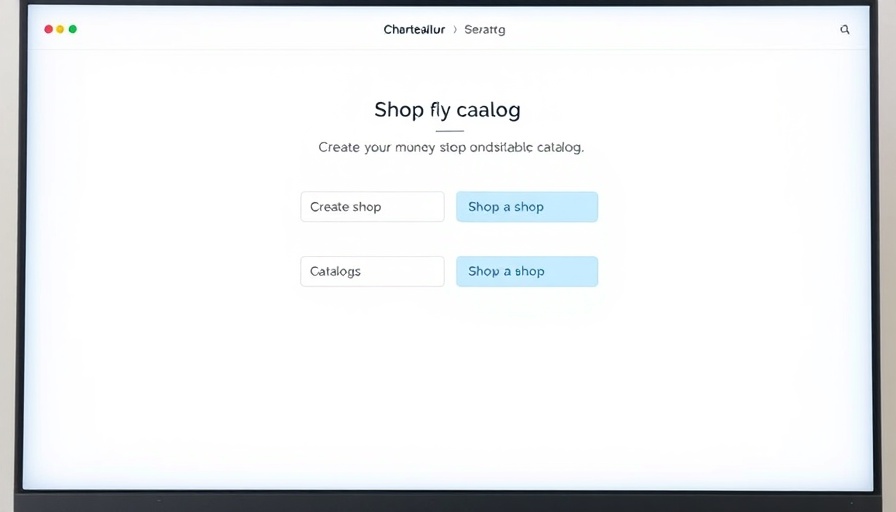
Why Selling on Facebook Matters More Than Ever
Facebook continues to dominate as a key player in the social commerce arena. By 2025, a significant number of online shoppers—approximately 20.6%—will likely turn to Facebook for their shopping needs. It’s no wonder that around 34% of Gen Z are leveraging the platform's Marketplace. It's sustainable and affordable, appealing to a generation that values eco-conscious shopping.
Navigating Facebook Shops and Marketplace
For small business owners looking to maximize their online presence, Facebook offers a two-pronged approach through Facebook Shops and Marketplace. With a dedicated Facebook Business Page, retailers can integrate their existing ecommerce platform or even build their own Facebook Shop. This setup not only facilitates a seamless shopping experience across Facebook and Instagram but also taps into the power of direct communication through WhatsApp and Messenger. Meanwhile, Facebook Marketplace serves as the community bulletin board, catering primarily to local audiences for items like gently used or one-off products.
Adapting to Facebook's Evolving Features
The landscape of selling on Facebook is ever-changing. In 2023, Meta introduced processing fees for sales made on the platform, with an exception for Shopify users. Furthermore, Facebook phased out web-based Shops features, making them exclusively available on the mobile app. Keeping abreast of these updates is crucial for small businesses to remain agile and effective in their sales strategies.
The Future of Social Commerce
Looking forward, small business owners should expect further integration of payment solutions and enhanced tools for analytics and targeting. This evolving technology will demand adaptability and creativity from businesses aiming to capture and engage their audience effectively. By staying informed and agile, small businesses can leverage these developments to thrive in the competitive world of social commerce.
 Add Row
Add Row  Add
Add 




Write A Comment